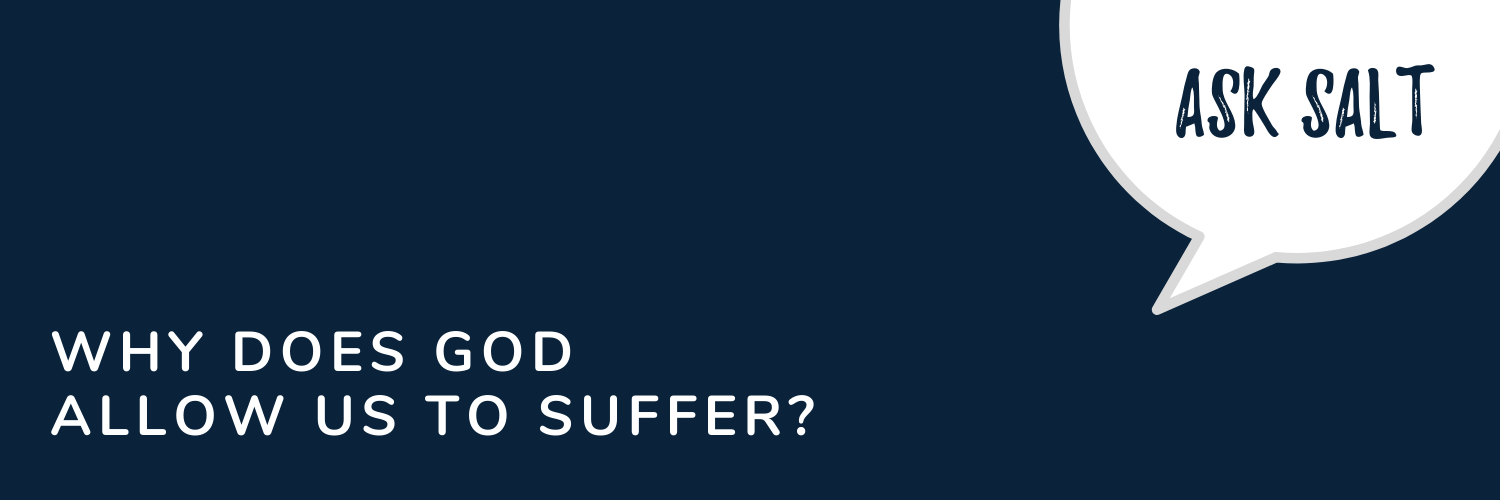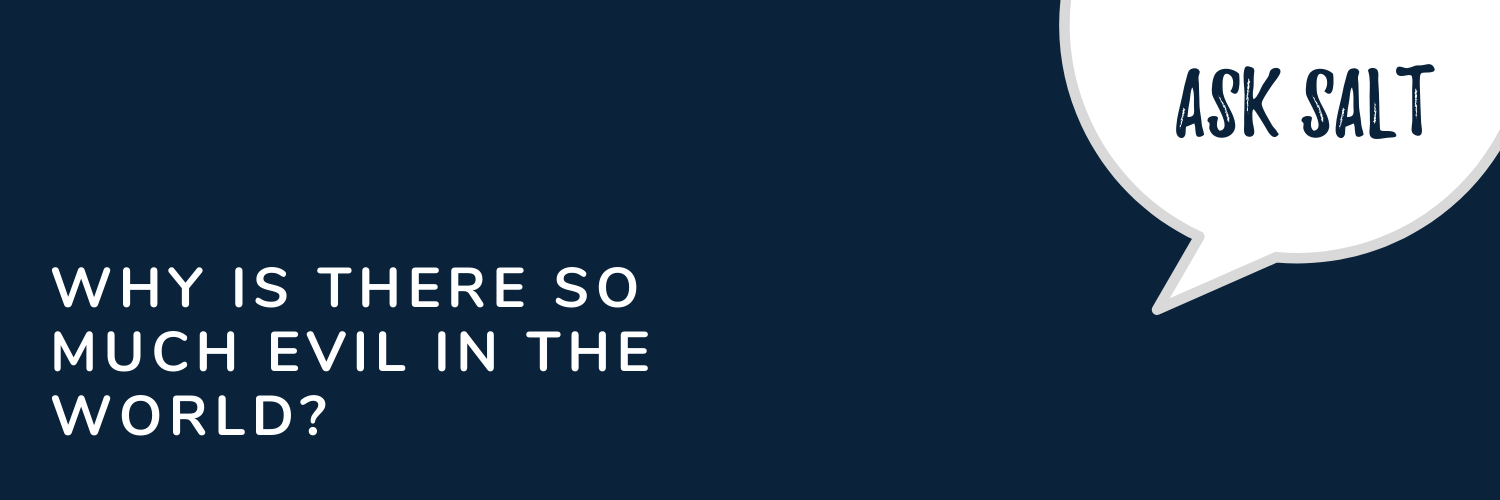|
Q3 was very blessed! Read ahead for all the latest news at SALT.
0 Comments
.The first quarter of 2022 has been busy and blessed. The mission in Nigeria is flourishing and very active, so we thank God for all the ways He has blessed the service so far. Keep praying with us please! This is the most difficult question to answer as a theist. We, as Christians accept that suffering is a result of evil existing in the world. C.S. Lewis once said contemplating on the topic that “suffering is God’s megaphone to a deaf world.
But how would an atheist reconcile the thought of a benevolent, omnipotent, omniscient God and suffering. Surely if God is as all-powerful as He is, He can stop suffering altogether. Breaking up the thought into a few components in order to approach the question, we first look to the question and the questioner themselves. The question is based on values that prove rather than disprove the existence of God because you wouldn’t ask the question if you don’t believe in an absolute moral law. And if you wouldn’t believe in an absolute moral law unless you believed that there is a moral law giver. So God must be involved in the paradigm, not away from it. Both believers and nonbelievers alike, can agree that the ultimate ethic in life is love. There is no higher standard that a human can experience in life beyond love. And a major component of love is free will. In other words, free will is indispensable to love. So to keep God, love and free will in the paradigm, there must be the free will to also choose evil which is separation or deviance from love. And this is the consequence of God’s supreme effort. Another thought on this matter is this: If I was to take a life, that tragedy would be irreversible. But if God takes it, He has the power to bring life into it again in eternity. So without eternity, the problem of evil would still be unanswered. Thus, because God is able to restore life and He grants us eternity, eternity leads to eternal justice. Reconciling the prevalence of evil in the world--from wars to corruption to violence to abuse-- with the existence of an all-loving God sometimes feels like a feat. But it’s not a far-fetched argument to understand that both God and evil can exist at the same time.
God gave us free will. He gave us the decision to choose between living in love and acting in hate. This free will is fundamentally what gives meaning to the actions we take. Without this agency, we would simply behave as dictated to us. Our actions would not be our own, but belonging to someone else. And thus, they could never be inherently good or bad. For instance, choosing to be selfless is built upon the existence of an opportunity to act in self-interest. A selfless act could never exist in isolation. The sacrifice it necessarily entails means it must coincide with the opportunity to act otherwise--in this case, the opportunity to act selfishly. Without free will, the value of being selfless is not a choice and its value disappears. Likewise, goodness can only retain its value if the option to choose evil is there. It is not necessarily one grand decision, but a series of small ones that we take in our day-to-day. Choice imposes the value that attributes “goodness” to good and “badness” to bad. “See, I have set before you today life and good, death and evil, in that I command you today to love the Lord your God, to walk in His ways, and to keep His commandments, His statutes, and His judgments, that you may live and multiply; and the Lord your God will bless you in the land which you go to possess” (Deuteronomy 30:15-16). |
AuthorWe are many voices, united by the same Spirit, driven to Serve Apostolic Love and Testimony. Archives
February 2024
Categories
All
|


 RSS Feed
RSS Feed